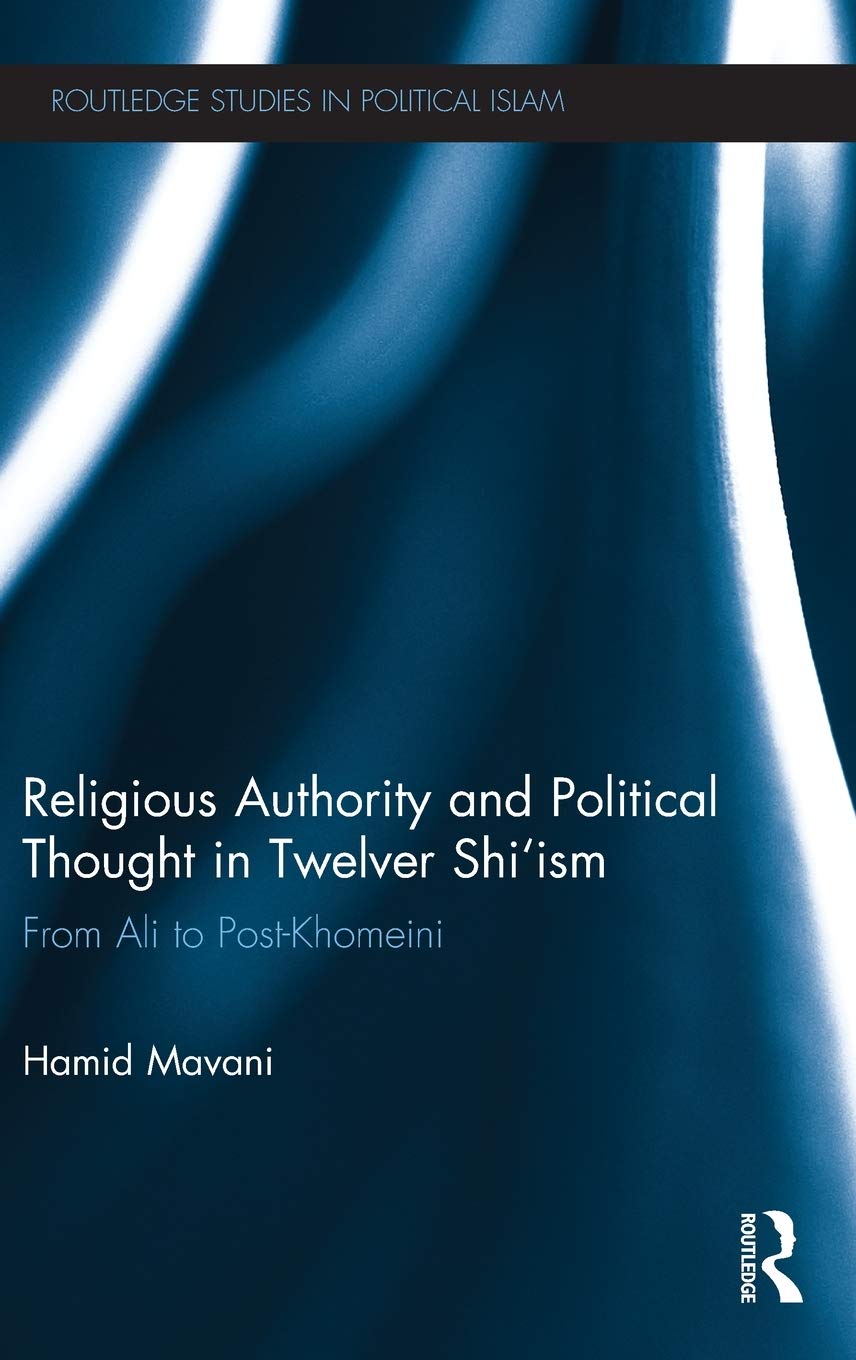

Most ebook files are in PDF format, so you can easily read them using various software such as Foxit Reader or directly on the Google Chrome browser.
Some ebook files are released by publishers in other formats such as .awz, .mobi, .epub, .fb2, etc. You may need to install specific software to read these formats on mobile/PC, such as Calibre.
Please read the tutorial at this link. https://ebooknice.com/page/post?id=faq
We offer FREE conversion to the popular formats you request; however, this may take some time. Therefore, right after payment, please email us, and we will try to provide the service as quickly as possible.
For some exceptional file formats or broken links (if any), please refrain from opening any disputes. Instead, email us first, and we will try to assist within a maximum of 6 hours.
EbookNice Team

Status:
Available0.0
0 reviews
ISBN-10 : 0415624401
ISBN-13 : 9780415624404
Author: Hamid Mavani
Ranging from the time of the infallible Imams, to the contemporary era, this book provides a comprehensive overview of Shi’i religious and political authority, focusing on Iran and Lebanon, without limiting the discourse to Khomeini’s version of an Islamic State. Utilising untapped Arabic and Persian sources, Hamid Mavani provides a detailed, nuanced, and diverse theoretical discussion on the doctrine of leadership (Imamate) in Shi’ism from traditional, theological, philosophical, and mystical perspectives. This theoretical discussion becomes the foundation for an analysis of the transmission of the Twelfth Imam’s religious and political authority vis-á-vis the jurists during his Greater Occultation. Bringing the often overlooked diversity within the Shi’i tradition into sharp focus, Religious Authority and Political Thought in Twelver Shi’ism discusses what constitutes an Islamic state, if there is such a notion as an Islamic state. Hamid Mavani further explores the possibility of creating a space for secularity, facilitating a separation between religion and state, and ensuring equal rights for all. This book argues that such a development is only possible if there is a rehabilitation of ijtihad. If this were to materialise modern religious, social, economic, political, and cultural challenges could be addressed more successfully. This book will be of use to scholars and students with interests ranging from Politics, to Religion, to Middle East Studies.
1 The Ethos of Shi‘ism
Origin of the Term Shi‘a
The Origins of Shi‘ism
The Imamate and Wilaya/Walaya/Muwalat
(i) Mawadda/Mahabba/Hubb/Walaya
(ii) Khilafa
(iii) Al-Wilayat al-Mutlaqa (Tashri‘i and Takwini):70 Legislative and Creative Authority
Notes
2 Approaches to the Imamate Traditional, Theological, Philosophical, and Mystical
Traditional Approach: the Qur’an and the Hadith
Mawadda, Khilafa, and Wilaya
Identity of the Wali
Consensus (Ijma‘)
Other Qur’anic Verses Cited on Mawadda, Khilafa, and Wilaya
Ta’wil
Theological Approach to Imamate (Manhaj Kalami55)
Ma al-Imam?
Hal Yajibu Nasb al-Imam?
Obligation on God to Appoint an Imam Based on Rational Proofs
Obligation on God to Appoint an Imam Based on Revelatory Proofs
Mandatory for People to Appoint an Imam Based on Reason
Mandatory for People to Appoint an Imam Based on Revelatory Proofs
Lim Yajibu Wujud al-Imam
Kayf al-Imam
‘Isma81
The Philosophical Approach to Imamate (Manhaj Falsafi)
The Supreme Station of the Divine Guides
Additional Philosophical Principles
The Mystical Approach to Imamate And Wilaya (Manhaj ‘Irfani)
Tasawwuf
Theoretical Mysticism (al-‘Irfan al-Nazari)
Notes
3 Mode of Succession and Imam's Policy vis-à-vis the Rulers
Ali Views Himself as the Most Qualified Candidate
Evidence Supporting Ali's Explicit Designation
Is it Possible to Reconcile These Opposing Views?
Relation of the Imams with the Rulers
Disciples' Disagreements on the Doctrine of Imamate
Dispute over the Imam's Knowledge
The Infallibility of the Imams
Conclusion
Notes
4 Shi'i State Models during the Major Occultation
Different Models of Government in Shi'ism
Muhammad Baqir al-Sadr
Incorporating Social Ijtihad alongside Individual Ijtihad
Ulama as Witnesses
Hosein Ali Montazeri
Muhammad Mahdi Shamsuddin85
Necessity of Establishing a Government
Wilaya of the People over Themselves (Wilayat al-Umma ‘ala Nafsiha)
The Ruler's Identity
Shamsuddin and Shura
Human Rights
Muhammad Mehdi Haeri Yazdi
Notes
5 Khomeini's Concept of Governance and its Critique
Khomeini's Concept of the Jurist's Absolute Authority (al-Wilayat al-Mutlaqa)
Khomeini's Opinion on Wilaya and the Rightly Guided Caliphs
Wilayat al-Faqih17
A Historical Overview of the Ulama's Political Involvement
The Ulama's Indirect Deputyship (Niyaba)
The Evolution of Khomeini's Thought on Wilayat al-Faqih
Dissenting Views on Wilayat al-Faqih
Theoretical Critique of Khomeini's Absolutist Wilayat al-Faqih
Conclusion
Notes
6 The Case for Secularity in Islam1 Traditional and Foundational Ijtihad
Bifurcation of the Temporal and the Religious
Acts of Worship ('Ibadat) and Human Interrelations (Mu'amalat)
Religion (Din) and State (Dawla)
Maqasid al-Shari'a (The Aims and Intentions of the Law)
Traditional Ijtihad
Applied Jurisprudence: Traditional Paradigm
Foundational Ijtihad64
Applied Jurisprudence: Foundational Paradigm
Reformist Ayatollahs and Secularity
Shamsuddin and Mintaqat al-Faragh
religious authority
religious authority examples
religious authority definition
religion and authoritarianism
a political and religious leader
Tags: Religious Authority, Political Thought, Twelver Shiism, Post Khomeini, Hamid Mavani